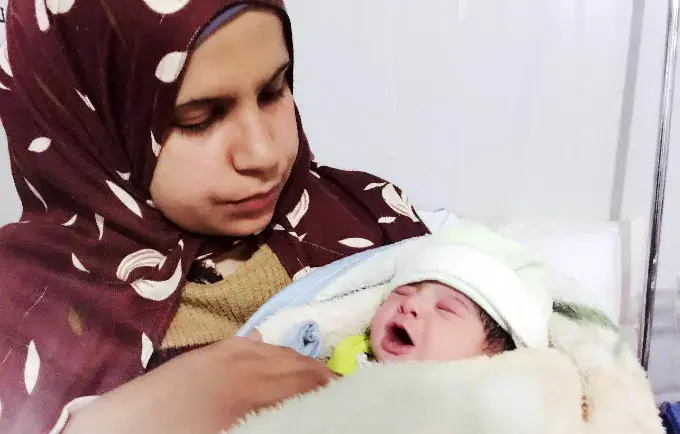ZA'ATARI, Jordan — In a tent hospital bed, a Syrian woman who was four months pregnant when she fled her country's civil war cradles one of the newest residents of this dust-swept refugee camp: Her newborn son, just delivered by Caesarean.
Around a dozen babies are born every day in Za'atari camp, which is home to 120,000 Syrians and counting – and there's only one, overworked Moroccan doctor performing C-sections.
Still, the clinic where he operates and several other field hospitals here performing regular births are a moment of quality care for women dealing with pregnancy on top of the trauma suffered in their homeland and the hardship of exile in a rough camp.
"Thank God, we have clean facilities and safe instruments in such a refugee camp," the woman, Umm Raad, said this week in the maternity ward of the Moroccan field hospital, holding her hour-old baby, Abdullah. Like other women in the camp she asked to be identified by her nickname for fear of repercussions against her family still in Syria.
Over 10 months, Zaatari near the border with Syria has catapulted from a barren patch of desert to effectively become Jordan's fifth largest city, and it's still rapidly growing. They are only a portion of the more than half million Syrian refugees in Jordan, the rest of whom live in towns and cities around the country, with 1,500-3,000 more crossing in from Syria every day.
Read the full story by Dale Gavlak as published by the Associated Press



